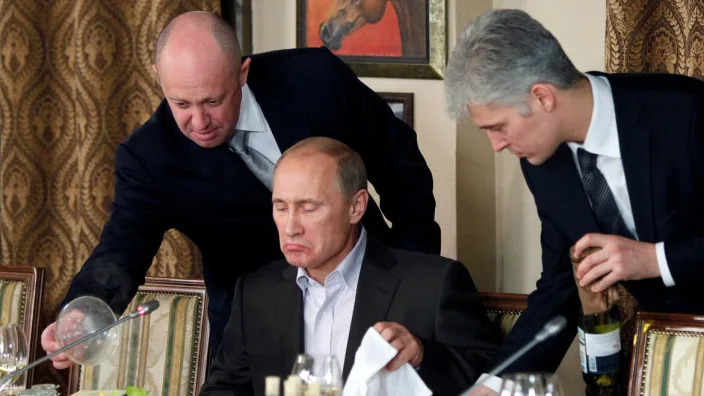Barbie Latza Nadeau
Mon, November 7, 2022

Misha Japaridze/Reuters
After adamantly denying interfering in the 2016 U.S. election that brought Donald Trump to power, a Kremlin insider has admitted that suspected Russian interference in American elections was real. “We have interfered, are interfering and will continue to interfere,” Yevgeny Prigozhin, a chief ally and favorite chef of Vladimir Putin said on Russian social media through his Concord Catering company on Monday. “Carefully, precisely, surgically and in our own way. During our pinpoint operations, we will remove both kidneys and the liver at once.”
The remark, made on the eve one of the most important elections in recent history as American go to polls for midterm elections Tuesday, did not immediately garner comment from Democrats or Republicans.
Prigozhin is the first Russian close to Putin to admit what the FBI has long suspected: that Russia interfered in U.S. elections.
The Russian who orchestrates Putin’s private army—the Wagner group—did not specify which election the Russians have intervened in, but he is well aware that there has been intense focus, and several indictments, surrounding Russia’s alleged efforts in the election of Trump, when there was reason to believe that Kremlin wanted the former reality TV star to be victorious.
It has been reported that Russian agents dug deep, probing voter databases for insecurities and even hacking Hillary Clinton’s campaign to try to swing the vote towards Trump.
During the election campaign, Russian operatives are suspected of hacking the Democratic Congressional Campaign Committee and the Democratic National Committee and even trying to hack the Republican National Committee. The FBI also contends they spread propaganda on social media, including Twitter, Facebook, YouTube and Instagram and staged fake rallies in the swing states Florida and Pennsylvania.
‘Putin’s Chef’ Suddenly Has a Lot to Say About Twisted New War Effort
Prigozhin did not elaborate on the extent of the interference, or if the FBI was right when they indicted him and a dozen other Russians in 2018 as part of the Mueller investigation for operating a covert social media campaign, nor if Russia was behind setting up fake meetings with Trump associates that included a promise of a Trump Tower in Moscow.
The Justice Department under Trump eventually tried to get the charges dismissed since the two main companies named—Concord Management and Consulting LLC and Concord Catering—had no fiscal presence in the U.S. and that trying them would potentially lay bare some investigative secrets.
Prigozhin, who has been slapped with sanctions from the U.S., U.K., and E.U., also admitted in September that he founded and funded the Wagner mercenaries that fought in Syria and African and who are now operating for Russia in Ukraine after denying involvement for years.
In July, the U.S. offered a $10 million award for information on his “engagement in U.S. election interference.”











